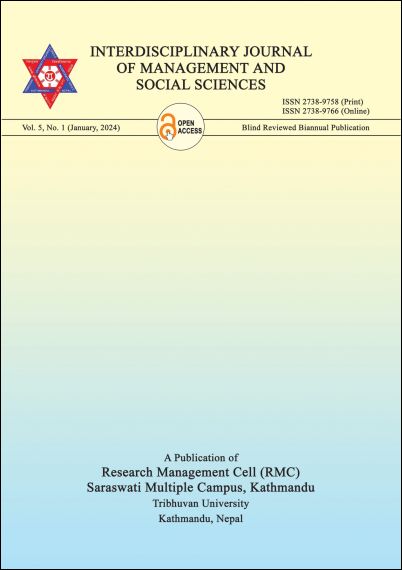Human Development Indices and Governance Interrelationship: Evidence from Nepal
DOI:
https://doi.org/10.3126/ijmss.v5i1.62672Keywords:
HDI, governance, linkage, KMO index, Life expectancy, Descriptive analysisAbstract
The objective of this study is to investigate the correlation between human development indices (life expectancy, education and GNI) and six dimensions of governance (e.g., voice and accountability, political stability and no violence, government effectiveness, regulatory quality, rule of law, and control of corruption), while utilizing remittances as a control variable in the analysis. The analysis conducted using the ordinary least squares (OLS) method has revealed that personal remittances have a substantial influence on human development indices. A population that has received a high level of education tends to possess a greater understanding of their rights and is able to actively engage in the process of governance. The establishment of good governance has the potential to facilitate the development and successful execution of effective educational policies. A positive correlation has been identified between human development indices and two aspects of governance, including government efficiency and political stability. Life expectancy index has also associated with regulatory quality of government.
Downloads
Downloads
Published
How to Cite
Issue
Section
License

This work is licensed under a Creative Commons Attribution-NonCommercial 4.0 International License.

